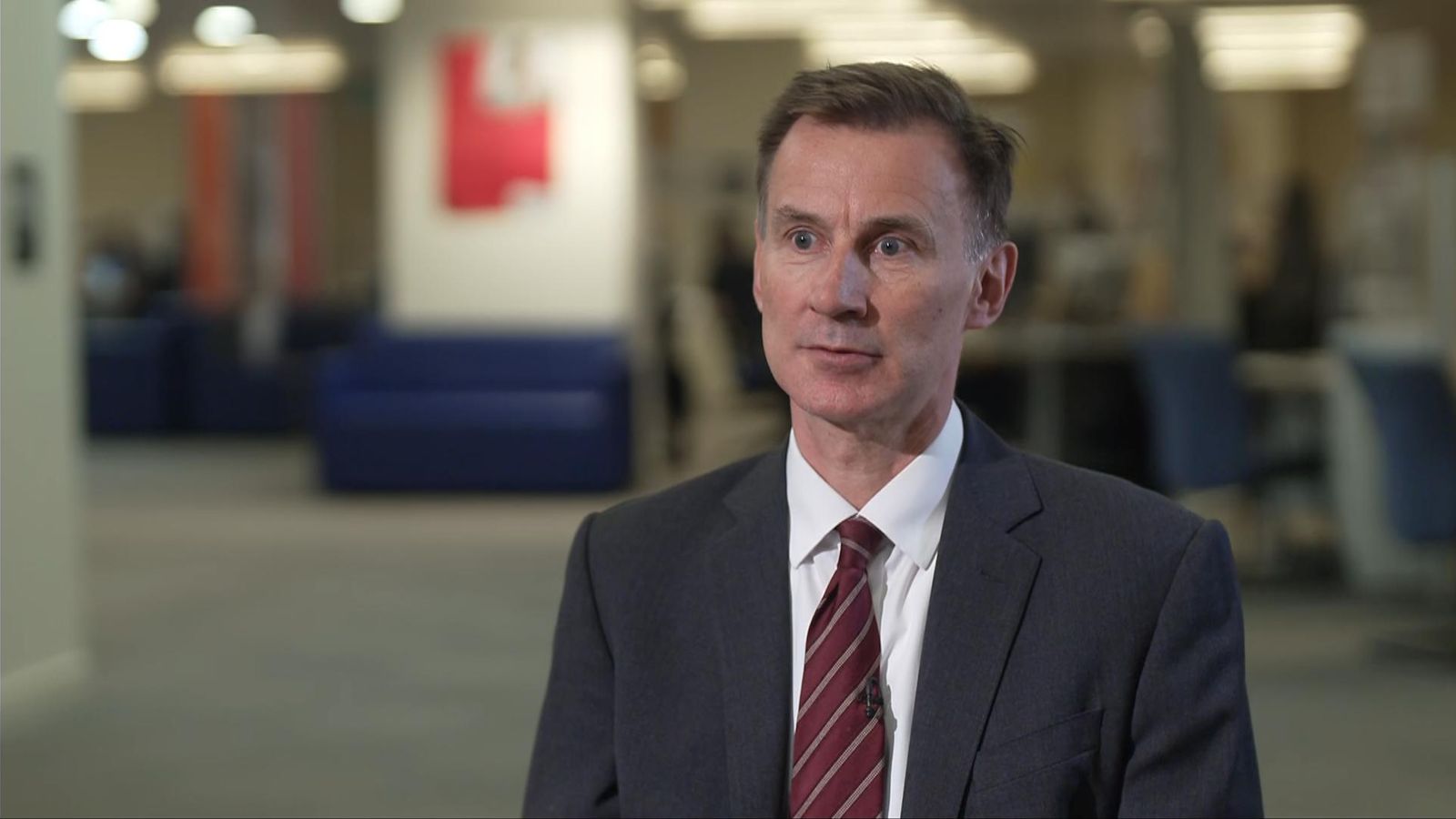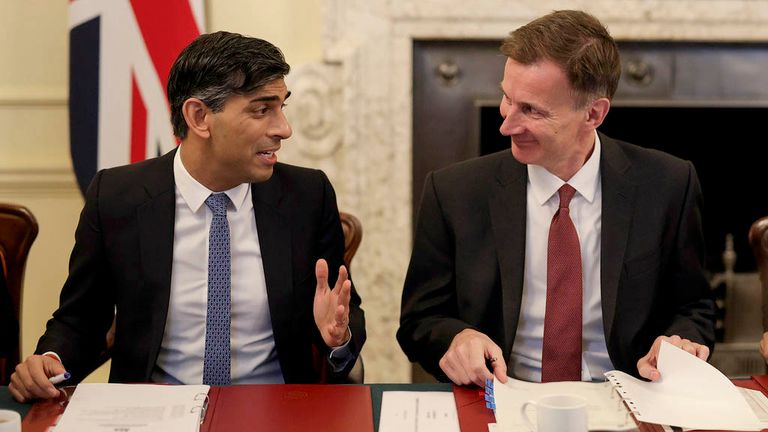There will be a lot of positive talk from the chancellor when he delivers his autumn statement on Wednesday, but this will be a fiscal event full of illusory gains.
The government is on track to borrow less than previously forecast, which will give rise to a fantasy that Chancellor Jeremy Hunt has more space to slash taxes than he actually has.
It’s a fantasy because these gains on borrowing are largely the product of high inflation, which has bolstered tax receipts. The government hasn’t admitted it yet, but inflation will inevitably drive up spending too.
It means Hunt’s room for manoeuvre is actually limited if he wants to meet his target of getting debt falling as a proportion of gross domestic product (GDP).
Although interest rates, which have been higher than expected, will weigh on the public finances, the windfall from higher taxes bolstered by inflation and wage growth will more than offset this. The Office for Budget Responsibility (OBR) will likely show that the government’s headroom against that target has grown from £6.5bn to around £13bn.
Jeremy Hunt will want to claim this as a victory, while also tempering expectations for tax cuts. His message will be that the public finances are improving under this government but they are in too poor a shape to allow for any tax cuts.
This is where the political infighting begins. Many MPs within his own party want him to use that headroom to cut taxes. They are perturbed by the fact that a Conservative government has overseen growth in the tax burden to its largest in the post-war era.
Among the most egregious of these tax rises is the freezing of thresholds, a stealth tax which will see taxpayers pay £40bn a year more by 2028. It has dragged millions of public sector workers, including teachers and nurses, into the higher band of tax.
Tensions over taxation have been simmering in the party and will likely flare up again because Hunt is unlikely to make any big giveaways. The government is insistent that the priority must be to bring inflation down because any tax rises could drive inflation higher. However, with the target to halve inflation now met, MPs will be asking when the tax cuts can begin.
Both Hunt and Rishi Sunak are sensitive to this and will probably throw a bone or two. Downing Street has been looking for options that are relatively inexpensive and less likely to increase inflation.
There are a number of policies under consideration, including the scrapping of inheritance tax, or a reduction in the rate from 40% to 20% on estates above £325,000. The government could also cancel a planned increase on stamp duty. Together, these policies would cost about £5.2bn. The chancellor is also expected to cancel the planned 5p increase in fuel duty from April next year, which will cost £6bn.
So, any giveaways would quickly swallow up the headroom, at a time when government spending will inevitably have to rise. Departmental budgets are set in cash terms and high inflation means that the cost of paying prison guards and running courts has gone up. Without substantial increases, public services face real-terms pay cuts.
On current plans, unprotected departments would see their spending power cut by 16% between 2022-23 and 2027-28, which would be a similar pace of cuts to those implemented by George Osborne in the early 2010s. The Resolution Foundation, a left-leaning think tank, described this scale of the cuts as a “fiscal fiction” that is “undeliverable”.
Read more:
Jeremy Hunt signals tax cuts as lower inflation means economy has ‘turned a corner’
David Cameron’s official peerage title revealed
Hunt contradicts PM on Rwanda flight take off position
The opposition will be keeping a hawk eye on this and will be quick to decry any signs that the country is returning to a period of austerity. It will also be quick to attack any of the government’s tax-raising plans – and there will be a number of them.
Tax thresholds will probably remain frozen into 2029, a policy that could raise another £6bn. The Treasury will also be cracking down on benefits, uprating them in line with October’s inflation rate of 4.6% instead of September’s figure of 6.7%. That could save £2bn. A tweak to the triple lock calculation for pensions could net £600m.
So, for all the large upward revisions to the numbers coming out of the OBR, it’s a fiscal event that is unlikely to inspire. There will be some tweaks around the edges and some big talk on plans to boost economic growth.
However, the government will probably want to keep its powder dry for the budget in March. Unfortunately, that may not be enough to satisfy Tory MPs, who are hungry for tax giveaways now.


